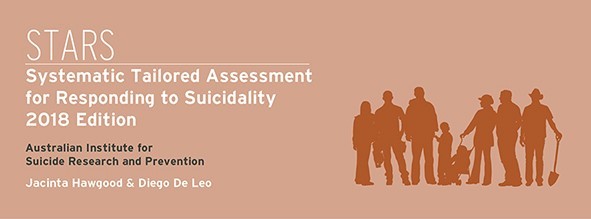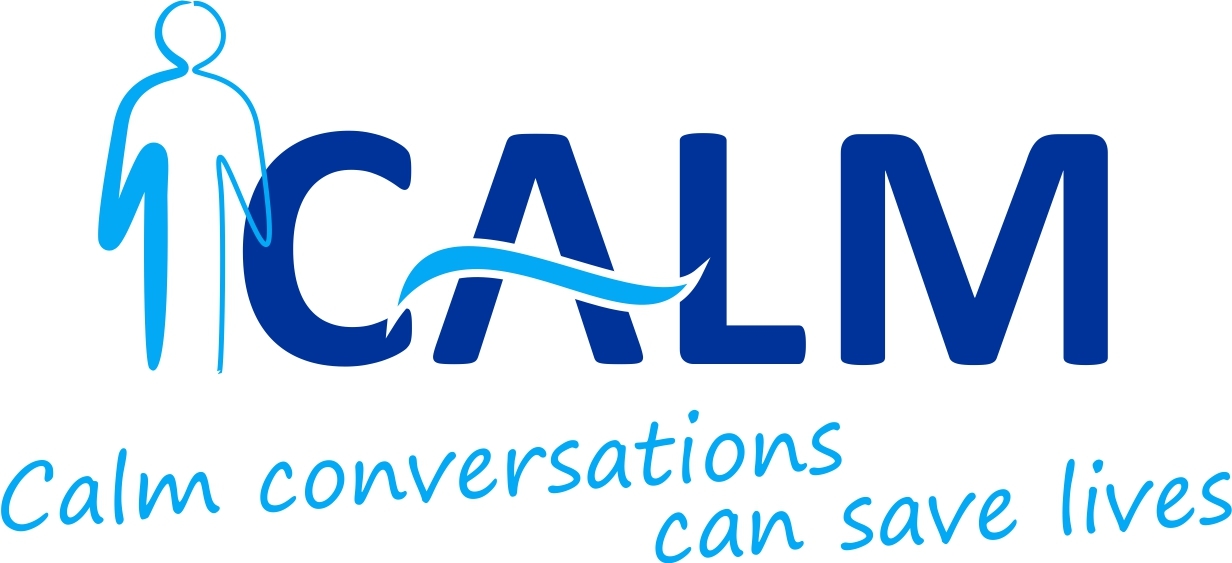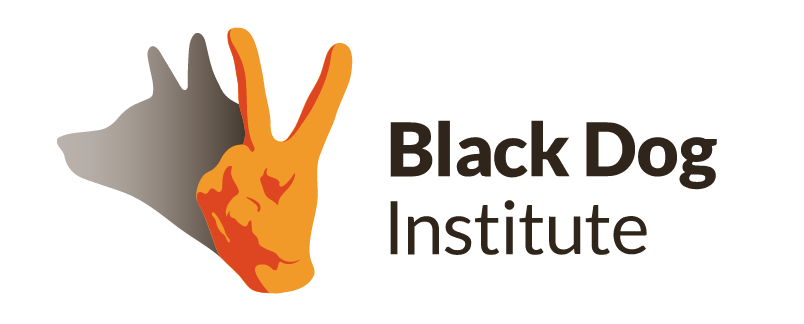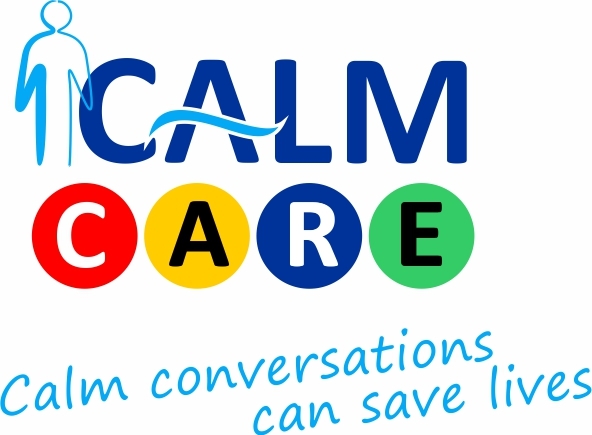Zero Suicide Healthcare Training
This directory has been developed in collaboration with Zero Suicide Institute of Australasia to support the training of staff within healthcare systems providing care to those who may be experiencing suicidal behaviours.
Please contact [email protected] to add training programs that may be appropriate to this directory.
Learn more about the Zero Suicide Healthcare Framework and the elements of Zero Suicide Healthcare.
Showing 35 courses
Systematic Tailored Assessment for Responding to Suicidality protocol (STARS-p) Training
by Australian Institute for Suicide Research and Prevention (AISRAP)
tel: (07) 3735 3379 | [email protected]

STARS-p is a person-centred, psychosocial needs-based semi-structured interview. It was developed to provide a therapeutic framework for collaborative enquiry between worker and client to gain insight into the client experience of suicidality – using client narratives and their priority needs and concerns. The ultimate goal is to understand these concerns and collaboratively identify ways to enhance client safety and care for the short to medium term.
The purpose of STARS is to:
- To enhance worker understanding of the client's story by enticing worker reflection on the key factors that the client perceives to be contributing towards their suicidal state and experience.
- To assist and guide workers on ways to collaboratively elicit key client reported concerns perceived to contribute to suicidality as well as those factors that buffer against experiences of distress.
- To provide workers with a guiding framework for collaborative interviewing that is informed both by empirically based risk and protective factor information, as well as lived experiences of suicide. Further, to guide workers on processes for collaborative safety planning and documentation in line with minimum standards of duty of care, around keeping the client safe.
- To enhance worker knowledge, confidence and skills around administration of STARS-p according to specific settings, contexts, and experiences of the client.
The training consists of 6 modules:
- Module 1 – Lived experience and worker attitudes (and fears)
- Module 2 – Essential concepts in suicide risk assessment
- Module 3 – Structure and application of STARS-p (structured professional judgement, collaborative and authentic enquiry processes, and philosophy of STARS-p)
- Module 4 – Documentation and duty of care (the notion of safety as opposed to risk mitigation)
- Module 5 – Safety planning (collaborative philosophy and review / rehearsal)
- Module 6 – Self care (and impacts on the worker).
*Skills based role plays are required for demonstration of competency and these are the main focus of the 1-day skills-based webinar following completion of the online training component.
Administration of the STARS protocol requires licensed training and involves 12-15 hours of online learning and a 1-day online skills-based webinar workshop. A 2-day face to face/in person workshop can also be arranged for organisations upon request.
The program cost includes usage of the STARS protocol for 12 months as well as all workbooks, handouts, articles and hard and electronic copies of the STARS protocol (a one-day refresher course is required for re-licensing purposes after 12 months). Please email Jacinta Hawgood at [email protected] for more information.
Please note: Training programs listed are accessed at the user's discretion and are not endorsed by Zero Suicide Institute of Australasia nor Life in Mind.
ZSH element
- Train
- Identify
- Engage
Audience
- Allied Health Clinician
- Support and Outreach
Focus
- Collaborative safety planning for suicide
- Communicating with patients about suicide
- Crisis response procedures and de-escalation techniques
- Determining appropriate levels of care for patients at risk of suicide
- Family, caregiver, and community supports
- Identifying risk factors for suicide
- Identifying warning signs for suicide
- Reducing access to lethal means outside the care environment
- Suicide risk formulation practices
- Suicide screening practices
- Suicide-specific treatment approaches
- Understanding and navigating ethical and legal considerations
Course type
- Online/e-Learning
- Face-to-face
Cost
- Fee for service
Location
- National
Advanced Training in Suicide Prevention aims to increase health professionals’ skills and confidence in taking a detailed suicide history and developing a collaborative management plan to increase the safety of people planning suicide.
The workshop provides practical tools for health professionals managing the full spectrum of suicide risk presentations, including the acute suicidal crisis, care after a suicide attempt, and assisting families experiencing suicide bereavement.
Please note: Training programs listed are accessed at the user's discretion and are not endorsed by Zero Suicide Institute of Australasia nor Life in Mind.
ZSH element
- Identify
- Engage
Audience
- Allied Health Clinician
- Nursing
- Physician
Focus
- Aftercare and follow-up
- Collaborative safety planning for suicide
- Communicating with patients about suicide
- Determining appropriate levels of care for patients at risk of suicide
- Family, caregiver, and community supports
- Identifying risk factors for suicide
- Identifying warning signs for suicide
- Managing suicidal patients
- Suicide prevention and awareness
- Suicide risk formulation practices
- Suicide-specific treatment approaches
- Understanding and navigating ethical and legal considerations
Course type
- Face-to-face
Cost
- Fee for service
Location
- National
This workshop has been designed to build on the current level of skills of school counselling staff, and to further develop confidence in undertaking risk assessments and safety planning for youth in distress.
In this highly interactive course, clinicians will have the opportunity to work on real case studies, reflect on their own experiences, and learn from peers.
The program has been developed based on extensive consultation with school psychologists and counsellors to identify the issues and solutions for dealing with complex cases in the school setting.
It is run by highly experienced clinicians with advanced group facilitation skills.
Please note: Training programs listed are accessed at the user's discretion and are not endorsed by Zero Suicide Institute of Australasia nor Life in Mind.
ZSH element
- Engage
Audience
- Allied Health Clinician
Focus
- Aftercare and follow-up
- Collaborative safety planning for suicide
- Family, caregiver, and community supports
- Identifying risk factors for suicide
- Identifying warning signs for suicide
- Managing suicidal patients
- Suicide prevention and awareness
- Suicide risk formulation practices
- Understanding and navigating ethical and legal considerations
Course type
- Face-to-face
Cost
- Fee for service
Location
- National

For people from all walks of life, CALM (Connect - Ask - Listen - Monitor) provides flexible and evidenced-based training that empowers anyone with knowledge and practical skills to support someone experiencing suicidality – to reduce stigma, promote help seeking and save lives.
Utilising multi-modal delivery and varied resources including digital tools such as the ‘Be CALM', 'Be Safe' and 'CALM Care' apps.
CALM is a comprehensive suicide intervention/prevention training program that addresses suicide ideation and behaviours from a conversational perspective, with the ultimate goal of allowing the person thinking about suicide to express their thoughts in a supportive and non-judgemental environment. This program equips and empowers participants to recognise and respond to suicide risk, to support someone through stages of positive intervention, the development of a safety plan, and linking to other services for further help.
CALM was designed and is delivered using the theories and principles of motivational interviewing, recovery-oriented practice, trauma-informed practice and client-centred therapy.
Please note: Training programs listed are accessed at the user's discretion and are not endorsed by Zero Suicide Institute of Australasia nor Life in Mind.
ZSH element
- Train
- Identify
- Transition
Audience
- Allied Health Clinician
Focus
- Aftercare and follow-up
- Collaborative safety planning for suicide
- Communicating with patients about suicide
- Family, caregiver, and community supports
- Identifying risk factors for suicide
- Identifying warning signs for suicide
- Managing suicidal patients
- Suicide prevention and awareness
- Suicide screening practices
Course type
- Face-to-face
Cost
- Fee for service
Location
- National
A 3.5 hour presentation that covers four key areas: Connect, Ask, Refer, Exit to build confidence, knowledge and skills that will enable participants to start a positive, and potentially life-saving conversation about suicide. This program equips and empowers participants to recognise and respond to suicide risk, and to have the skills to warm refer and so link to other services for interventions. Participants will be empowered with practical skills and resources, and given the confidence to remain calm.
Participants receive:
- Half day facilitated training by qualified facilitator;
- 16 page information booklet covering all learning materials;
- ‘CALM Care’ app for person being supported (immediate connection and contact);
- Web resources for further development and learning; and
- Completion certificate.
ZSH element
- Train
- Identify
- Engage
- Improve
Audience
- Allied Health Clinician
- Case Management
- Crisis Services
- Management
- Nursing
- Peer Support Worker
- Physician
- Support and Outreach
Focus
- Collaborative safety planning for suicide
- Family, caregiver, and community supports
- Identifying risk factors for suicide
- Identifying warning signs for suicide
- Staff roles and responsibilities within the work environment
- Suicide prevention and awareness
Course type
- Online/e-Learning
- Face-to-face
- Self-paced
Cost
- Fee for service
Location
- National
The Chats for life App targets young people and was developed in collaboration with the Queensland Mental Health Commission, Engage Lab (University of the Sunshine Coast) and a university student reference group and ConNetica.
The App addresses the:
• prevalence of mental health and suicide in Australia
• signs of at risk behaviours
• impact of life events and social determinants on suicide ideation for young people
• protective behaviours
• communication strategies and tools to support chats with at risk people
• suitable referral services, supports, resources.
The App also incorporates conversation planning tips and videos and tools to record planned conversations and automatic diary scheduling of conversations. The App is freely available. A 1.5 hour program was developed to accompany the App and provide opportunity to practice the conversation skills.
Please note: Training programs listed are accessed at the user's discretion and are not endorsed by Zero Suicide Institute of Australasia nor Life in Mind.
ZSH element
- Train
Audience
- Management
Focus
- Aftercare and follow-up
- Communicating with patients about suicide
- Crisis response procedures and de-escalation techniques
- Identifying risk factors for suicide
- Identifying warning signs for suicide
- Policies and procedures within the work environment
- Staff roles and responsibilities within the work environment
- Suicide prevention and awareness
Course type
- Online/e-Learning
Cost
- No cost
Location
- National
Conversations for life® - Early Suicide Prevention (half day) Conversations for life® provides participants with the knowledge, skills and confidence to have conversations with others who are starting to show signs of distress and withdraw.
This program provides participants with:
• an awareness of the prevalence of mental health and suicide in Australia
• an understanding of life events and social determinants that contribute to mental illness
• protective behaviours
• the skills and knowledge to identify signs and debunk social myths
• tailored mental health conversation planning tools
• problem solving and communication strategies that focus on mental health and early suicide prevention
• list of suitable referrals, support options and resources at local and national levels.
Independent evaluations completed by ANU Centre for Mental Health Research demonstrate statistically significant increases in suicide prevention knowledge, skills and willingness to engage in conversations with people who are vulnerable and or experiencing a crisis.
Please note: Training programs listed are accessed at the user's discretion and are not endorsed by Zero Suicide Institute of Australasia nor Life in Mind.
ZSH element
- Train
Audience
- Management
Focus
- Aftercare and follow-up
- Communicating with patients about suicide
- Crisis response procedures and de-escalation techniques
- Identifying risk factors for suicide
- Identifying warning signs for suicide
- Policies and procedures within the work environment
- Staff roles and responsibilities within the work environment
- Suicide prevention and awareness
Course type
- Online/e-Learning
- Face-to-face
Cost
- Fee for service
Location
- National
This imminent risk of suicide prevention training program addresses:
- evidence underpinning suicidal behavioural patterns and precipitating factors
- impact of personal values/beliefs/myths on suicide intervention
- signs of persons at imminent risk
- understanding how personal values, inappropriate language and stigma impact individuals requiring support and general community members
- willingness to support people at imminent risk of suicide, and at risk individuals' willingness to seek support
- protective behaviours
- knowledge, skills and attitudes to facilitate active suicide intervention
- detailed communication tips, strategies and tools to intervene
- suitable referral, support, resources Self-care for individuals providing support.
The program can be delivered as a Train the Trainer or Participant Program. The program content and delivery timeframes can be tailored to suit unique contexts and audience needs. Independent evaluations completed by ANU Centre for Mental Health Research demonstrate statistically significant increases in suicide prevention knowledge, skills and willingness to engage in conversations with people who are at imminent risk of suicide.
Please note: Training programs listed are accessed at the user's discretion and are not endorsed by Zero Suicide Institute of Australasia nor Life in Mind.
ZSH element
- Train
Audience
- Management
Focus
- Aftercare and follow-up
- Communicating with patients about suicide
- Crisis response procedures and de-escalation techniques
- Identifying risk factors for suicide
- Identifying warning signs for suicide
- Policies and procedures within the work environment
- Staff roles and responsibilities within the work environment
- Suicide prevention and awareness
Course type
- Face-to-face
Cost
- Fee for service
Location
- National

CORES aims to educate communities in early suicide prevention through early suicide intervention training. Being able to recognise the warning signs & know what to say, what to do & where to go for help. Providing the link between people at risk, the service providers & the community.
Read more about external evaluations completed on CORES here.
Please note: Training programs listed are accessed at the user's discretion and are not endorsed by Zero Suicide Institute of Australasia nor Life in Mind.
ZSH element
- Train
Audience
- Support and Outreach
Focus
- Family, caregiver, and community supports
- Identifying risk factors for suicide
- Identifying warning signs for suicide
- Suicide prevention and awareness
Course type
- Face-to-face
Cost
- Fee for service
- Subsidised
Location
- New South Wales
- Queensland
- South Australia
- Tasmania
ASIST is a two-day interactive workshop in suicide first aid.
Participants learn to recognise when someone may be thinking of suicide and respond in ways that help increase their immediate safety and link them to further help. ASIST aims to enhance a caregiver's abilities to help a person at risk avoid suicide.
It is intended that ASIST participants will be better prepared to:
• reflect on how their attitudes and beliefs about suicide affect their intervention role
• discuss suicide with a person with thoughts of suicide in a direct manner
• build a collaborative approach to intervention focussed on safe outcomes
• review immediate suicide risk and develop appropriate safeplans
• demonstrate skills required to intervene with a person at risk of suicide
• identify resources available to a person at risk of suicide
• make a commitment to improving community resources
• recognise that suicide prevention is broader than suicide first aid and includes life-promotion and self-care for caregivers.
Please note: Training programs listed are accessed at the user's discretion and are not endorsed by Zero Suicide Institute of Australasia nor Life in Mind.
ZSH element
- Train
Audience
- Support and Outreach
Focus
- Collaborative safety planning for suicide
- Communicating with patients about suicide
- Crisis response procedures and de-escalation techniques
- Family, caregiver, and community supports
- Identifying risk factors for suicide
- Identifying warning signs for suicide
- Suicide screening practices
- Suicide-specific treatment approaches
Course type
- Face-to-face
Cost
- Fee for service
- Subsidised
Location
- National



